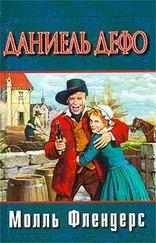Даниэль Дефо - History of the Plague in London
Здесь есть возможность читать онлайн «Даниэль Дефо - History of the Plague in London» весь текст электронной книги совершенно бесплатно (целиком полную версию без сокращений). В некоторых случаях можно слушать аудио, скачать через торрент в формате fb2 и присутствует краткое содержание. Год выпуска: 2014, Издательство: epubBooks Classics, Жанр: Историческая проза, на английском языке. Описание произведения, (предисловие) а так же отзывы посетителей доступны на портале библиотеки ЛибКат.
- Название:History of the Plague in London
- Автор:
- Издательство:epubBooks Classics
- Жанр:
- Год:2014
- ISBN:нет данных
- Рейтинг книги:4 / 5. Голосов: 1
-
Избранное:Добавить в избранное
- Отзывы:
-
Ваша оценка:
- 80
- 1
- 2
- 3
- 4
- 5
History of the Plague in London: краткое содержание, описание и аннотация
Предлагаем к чтению аннотацию, описание, краткое содержание или предисловие (зависит от того, что написал сам автор книги «History of the Plague in London»). Если вы не нашли необходимую информацию о книге — напишите в комментариях, мы постараемся отыскать её.
History of the Plague in London — читать онлайн бесплатно полную книгу (весь текст) целиком
Ниже представлен текст книги, разбитый по страницам. Система сохранения места последней прочитанной страницы, позволяет с удобством читать онлайн бесплатно книгу «History of the Plague in London», без необходимости каждый раз заново искать на чём Вы остановились. Поставьте закладку, и сможете в любой момент перейти на страницу, на которой закончили чтение.
Интервал:
Закладка:
Encouraged by this good usage, their carpenter, in a few days, built them a large shed or house with rafters, and a roof in form, and an upper floor, in which they lodged warm, for the weather began to be damp and cold in the beginning of September; but this house being very well thatched, and the sides and roof very thick, kept out the cold well enough. He made also an earthen wall at one end, with a chimney in it; and another of the company, with a vast deal of trouble and pains, made a funnel to the chimney to carry out the smoke.
Here they lived comfortably, though coarsely, till the beginning of September, when they had the bad news to hear, whether true or not, that the plague, which was very hot at Waltham Abbey on the one side, and Rumford and Brentwood on the other side, was also come to Epping, to Woodford, and to most of the towns upon the forest; and which, as they said, was brought down among them chiefly by the higglers, [204] Peddlers.
and such people as went to and from London with provisions.
If this was true, it was an evident contradiction to the report which was afterwards spread all over England, but which, as I have said, I cannot confirm of my own knowledge, namely, that the market people carrying provisions to the city never got the infection or carried it back into the country; both which, I have been assured, has been [205] "Has been," an atrocious solecism for "were."
false.
It might be that they were preserved even beyond expectation, though not to a miracle; [206] To a miraculous extent.
that abundance went and came and were not touched; and that was much encouragement for the poor people of London, who had been completely miserable if the people that brought provisions to the markets had not been many times wonderfully preserved, or at least more preserved than could be reasonably expected.
But these new inmates began to be disturbed more effectually, for the towns about them were really infected. And they began to be afraid to trust one another so much as to go abroad for such things as they wanted; and this pinched them very hard, for now they had little or nothing but what the charitable gentlemen of the country supplied them with. But, for their encouragement, it happened that other gentlemen of the country, who had not sent them anything before, began to hear of them and supply them. And one sent them a large pig, that is to say, a porker; another, two sheep; and another sent them a calf: in short, they had meat enough, and sometimes had cheese and milk, and such things. They were chiefly put to it [207] "Put to it," i.e., hard pressed.
for bread; for when the gentlemen sent them corn, they had nowhere to bake it or to grind it. This made them eat the first two bushels of wheat that was sent them, in parched corn, as the Israelites of old did, without grinding or making bread of it. [208] There are numerous references in the Hebrew Scriptures to parched corn as an article of food (see, among others, Lev. xxiii. 14, Ruth ii. 14, 2 Sam. xvii. 28).
At last they found means to carry their corn to a windmill near Woodford, where they had it ground; and afterwards the biscuit baker made a hearth so hollow and dry, that he could bake biscuit cakes tolerably well, and thus they came into a condition to live without any assistance or supplies from the towns. And it was well they did; for the country was soon after fully infected, and about a hundred and twenty were said to have died of the distemper in the villages near them, which was a terrible thing to them.
On this they called a new council, and now the towns had no need to be afraid they should settle near them; but, on the contrary, several families of the poorer sort of the inhabitants quitted their houses, and built huts in the forest, after the same manner as they had done. But it was observed that several of these poor people that had so removed had the sickness even in their huts or booths, the reason of which was plain: namely, not because they removed into the air, but [209] Supply "(1)."
because they did not remove time [210] Soon.
enough, that is to say, not till, by openly conversing with other people, their neighbors, they had the distemper upon them (or, as may be said, among them), and so carried it about with them whither they went; or (2) because they were not careful enough, after they were safely removed out of the towns, not to come in again and mingle with the diseased people.
But be it which of these it will, when our travelers began to perceive that the plague was not only in the towns, but even in the tents and huts on the forest near them, they began then not only to be afraid, but to think of decamping and removing; for, had they staid, they would have been in manifest danger of their lives.
It is not to be wondered that they were greatly afflicted at being obliged to quit the place where they had been so kindly received, and where they had been treated with so much humanity and charity; but necessity, and the hazard of life which they came out so far to preserve, prevailed with them, and they saw no remedy. John, however, thought of a remedy for their present misfortune; namely, that he would first acquaint that gentleman who was their principal benefactor with the distress they were in, and to [211] Substitute "would."
crave his assistance and advice.
This good charitable gentleman encouraged them to quit the place, for fear they should be cut off from any retreat at all by the violence of the distemper; but whither they should go, that he found very hard to direct them to. At last John asked of him, whether he, being a justice of the peace, would give them certificates of health to other justices who [212] Whom.
they might come before, that so, whatever might be their lot, they might not be repulsed, now they had been also so long from London. This his worship immediately granted, and gave them proper letters of health; and from thence they were at liberty to travel whither they pleased.
Accordingly they had a full certificate of health, intimating that they had resided in a village in the county of Essex so long; that, being examined and scrutinized sufficiently, and having been retired from all conversation [213] Familiar intercourse.
for above forty days, without any appearance of sickness, they were therefore certainly concluded to be sound men, and might be safely entertained anywhere, having at last removed rather for fear of the plague, which was come into such a town, rather [214] Evidently a repetition.
than for having any signal of infection upon them, or upon any belonging to them.
With this certificate they removed, though with great reluctance; and, John inclining not to go far from home, they removed towards the marshes on the side of Waltham. But here they found a man who, it seems, kept a weir or stop upon the river, made to raise water for the barges which go up and down the river; and he terrified them with dismal stories of the sickness having been spread into all the towns on the river and near the river, on the side of Middlesex and Hertfordshire (that is to say, into Waltham, Waltham Cross, Enfield, and Ware, and all the towns on the road), that they were afraid to go that way; though it seems the man imposed upon them, for that [215] "For that," i.e., because.
the thing was not really true.
However, it terrified them, and they resolved to move across the forest towards Rumford and Brentwood; but they heard that there were numbers of people fled out of London that way, who lay up and down in the forest, reaching near Rumford, and who, having no subsistence or habitation, not only lived oddly, [216] Singly.
and suffered great extremities in the woods and fields for want of relief, but were said to be made so desperate by those extremities, as that they offered many violences to the country, robbed and plundered, and killed cattle, and the like; and others, building huts and hovels by the roadside, begged, and that with an importunity next door to demanding relief: so that the country was very uneasy, and had been obliged to take some of them up.
Интервал:
Закладка:
Похожие книги на «History of the Plague in London»
Представляем Вашему вниманию похожие книги на «History of the Plague in London» списком для выбора. Мы отобрали схожую по названию и смыслу литературу в надежде предоставить читателям больше вариантов отыскать новые, интересные, ещё непрочитанные произведения.
Обсуждение, отзывы о книге «History of the Plague in London» и просто собственные мнения читателей. Оставьте ваши комментарии, напишите, что Вы думаете о произведении, его смысле или главных героях. Укажите что конкретно понравилось, а что нет, и почему Вы так считаете.












